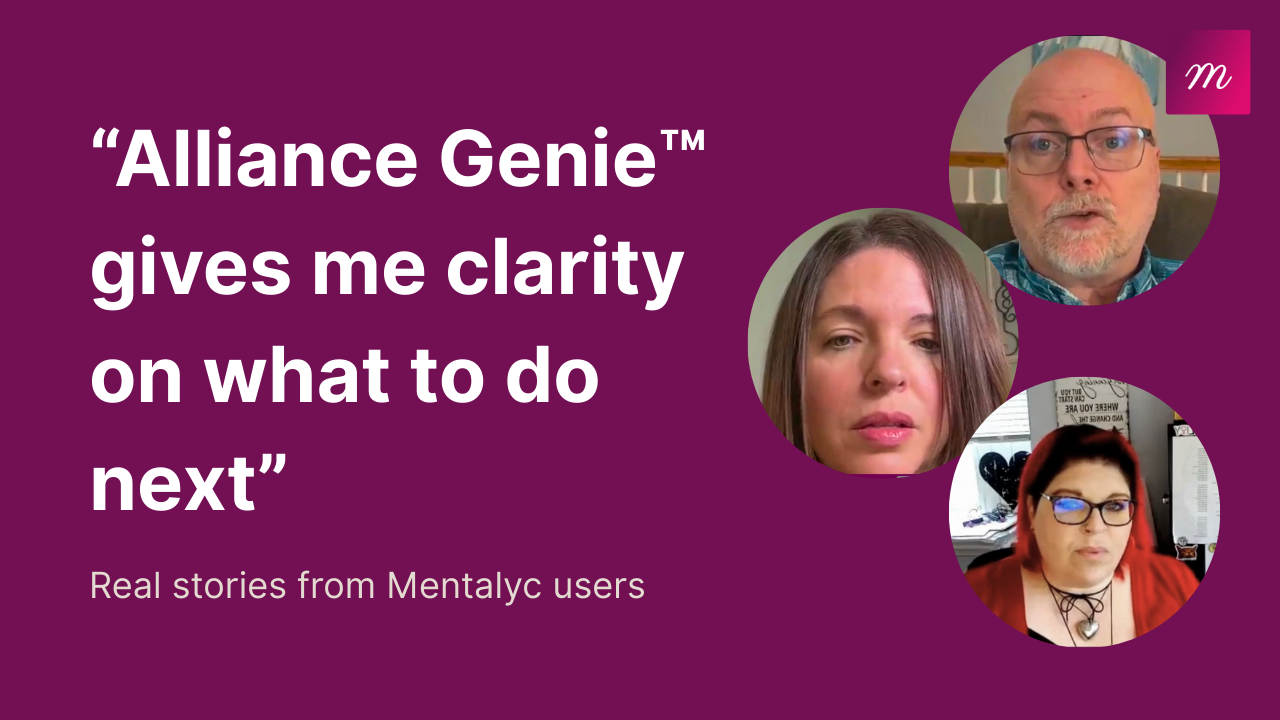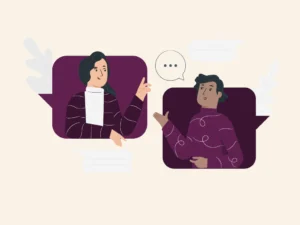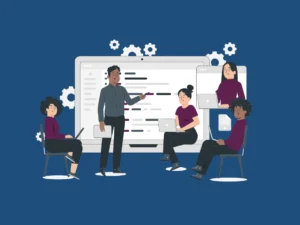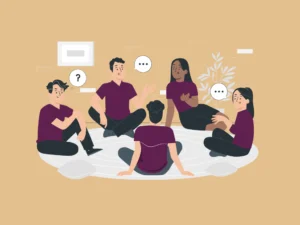Have you ever felt frustrated when your clients hit a plateau, and it feels like their healing has stalled? As dedicated mental health professionals, we are no stranger to this challenge. But what if the key to breaking through those barriers wasn’t to find the perfect answers but to empower your clients and boost their motivation? Imagine a practice where your clients are fully committed and inspired, owning their healing path. This isn’t just some abstract theory; it’s a tangible, objective approach that has helped thousands of therapists succeed.
Unlocking Client Empowerment in Therapy
Empowerment allows clients to make remarkable, positive changes in their lives. This approach provides them with the tools and strategies to navigate their healing process. Empowerment is about the skills of the client to independently manage future challenges, even outside the therapist’s expertise. It can be an enriching journey that results in a feeling of accomplishment and fulfillment for you and your client.
The Power of Collaboration
As mental health professionals, it is beyond time that we transcend the traditional model of the therapist as an expert in the room, prescribing treatment without an active investment of the client in their care. We know real healing occurs in a collaborative environment where respect for all parties goes both ways.
Here are a few ways that we can jump into this:
Involving Clients in Goal Setting:
Instead of immediately presenting the client with a predefined list of treatment goals, lead a discussion to determine the client’s personal goals. For instance, if the client indicates that they experience anxiety in social situations, instead of saying, “We will work on exposure therapy,” we might ask, “What specific social situations would you like to feel more comfortable in? This empowers them but, at the same time, gives us an idea about what is important to them.
Harnessing Clients’ Expertise
Each person in your therapy sessions has many of the riches we might hope to provide. We tap into that by asking about strategies they have used in the past that worked and ways they cope that work for them. For example, if a client reports using journaling as a coping mechanism for stress in the past, explore how this could be used within their current treatment plan and remind them that they are not beginning at a deficit but instead building on their strengths.
Regular Feedback Loops
Encouraging feedback from the client about the therapeutic process can significantly enhance our work. For example, questions at the end of a session, such as, “What was most helpful today?” and “What could we do differently for our next session?” can give us a wealth of information. Such an approach enhances our practice and reassures clients they have a voice in their therapy.
Education is Empowerment
Simply put, knowledge is power. When clients understand why they’re experiencing what they are, they’re better prepared to find effective healing paths. For example, think of a client who has been anxious for several weeks. If they go to treat their anxiety without knowing the root of it, they might miss a crucial insight into their life. By understanding their life events, stressful jobs, relationship issues, or past trauma-they can identify the triggers and learn coping strategies that address those specific issues. Understanding the ‘why’ behind their experiences helps them seek appropriate help and creates a sense of self-agency throughout the healing process.
Adopting this collaborative mindset nurtures the therapeutic relationship and allows our clients to become actively responsible in their healing journey. Remember, the clients are the experts in their lives, while we are the space facilitators for them to thrive. A collaborative culture boosts trust and resilience while promoting better outcomes.
The Magic of Motivation: Fuelling Therapeutic Advances
Therapeutic advances rely so much on motivation. We must realize that positive counseling outcomes are crucial. Highly motivated clients participate, remain focused on goals, and make lasting changes.
Understanding Different Kinds of Motivation
Therapy requires internal and external motivation. The internal drive is a client’s intrinsic desire to grow and change. Extrinsic motivation involves rewards or consequences. Clients need both equally to engage with goals and move forward successfully.
Techniques for Enhancing Motivation
To enhance motivation, the following therapeutic techniques for motivation will be effective:
- Explore readiness for change through motivational interviewing (MI)
- Build strong rapport to boost buy-in
- Celebrate all wins to maintain momentum
- Create a non-judgmental space to express themselves
Success comprises both empowerment and motivation. Once we lead our clients to explore strengths and identify achievable goals, we empower them to take responsibility for healing.
Proven Methods for Sparking Client Motivation
The outcome of any therapy is directly linked to the extent of client involvement in the course of treatment.
Below are some effective methods to motivate and empower your clients:
Establish a Strong Therapeutic Alliance
Building trust comes first. Practicing genuine empathy will help create a non-judgmental space where clients can share their thoughts and feelings without being judged. Openness and collaboration form a basis for client empowerment in a therapy session.
Employ Motivational Interviewing
Explore the client’s ambivalence about the change using open-ended questioning and reflective listening. Encourage your client to elaborate on their motivation, which results in increased compliance with treatment programs.
Reinforce All Achievements
Acknowledge progress no matter how small because every step forward is essential. Celebrating achievements makes clients feel more confident and ahead, motivating them through their journey. This also gives you a sense of optimism and encouragement.
Therapeutic Homework
Giving small, achievable tasks between sessions leverages therapy more effectively. Activities such as this may reinforce the insight gained during a session or facilitate a greater sense of independence in clients. These activities help clients take ownership of the experience beyond what is happening within a session, and they may make more progress through deeper investments in their self-improvement. They may also help review what was accomplished and any complications that occurred for each subsequent session to become increasingly productive.
The most effective motivational approach for clients in counseling involves tailoring techniques to match clients’ unique needs and their current readiness for change. Applying such therapeutic techniques provides an enabling environment for client development and progress.
Finding the Balance to Support and Challenge Clients
Creating an effective therapy environment requires balancing support with challenges to empower clients throughout their therapeutic journey. Therapists serve dual roles as reliable sources of support and active personal development facilitators.
The Art of Gentle Pushing
A gentle push can be a powerful tool for clients in the counseling process. Help clients create new experiences by setting up small challenges beyond their comfort zones. Encourage clients to engage in brief and survivable exposures to feared situations. A good motto is that progress, not perfection, is the goal.
Reading the Room
Be present with the physical cues and words your client uses. By physically leaning in or pulling away, you will know which clients are moving forward with a sense of curiosity. This will indicate when you should amp up the challenge and when you should bring it down for your client. Motivational therapeutic approaches must be tailored to meet each client at their respective level of readiness for change.
Empathy as Your Compass
As the therapist, you must be empathetic while challenging the clients toward breakthroughs. Therapists must support clients by acknowledging their difficulties and, at the same time, push them toward growth. The balance between empathy and challenge maintains trust and, therefore, the client’s engagement in therapy. When clients feel their therapist understands and supports them authentically, they are more willing to take risks.
Remember, the balance of support and challenge is constantly shifting. Be flexible, yet always keep your client’s welfare foremost.
Conclusion
Empowering and motivating your clients requires a careful balance of support and encouragement. The essence lies in blending guidance with inspiration. Your role transcends simple affirmations, partnering deeply in their developmental journey. Embrace the challenge of pushing your clients while letting empathy and understanding illuminate your path. Celebrate every small success and stay genuinely invested in their growth, believing wholeheartedly in their potential for transformation. These tools in your therapy toolkit can ignite remarkable changes in your clients.
Unlock your full potential and elevate your practice by investing in yourself and your clients with Mentalyc. Imagine focusing entirely on what you do best while effortlessly managing your progress notes. With the power of AI at your fingertips, Mentalyc ensures that you’re always at the top of your game. Don’t let the administrative burden hold you back—empower yourself and inspire those around you. Take a step towards efficiency and excellence today!
Empowering Your Client: Your Frequently Asked Questions
What is client empowerment in therapy?
In therapy, client empowerment allows clients to engage in their healing process actively. This fosters a sense of autonomy and self-efficacy that can lead to powerful positive changes.
How important is motivation to progress in therapy?
Motivation is a key ingredient in therapeutic change because it gets the clients moving and promotes their setting and working toward goals. The stronger the motivational foundation, the better the therapy will work.
What is the right balance in therapy between supporting and challenging clients?
This means balancing supporting clients and challenging them out of their comfort zone. This provides a very healthy therapeutic environment for growth and development.
Which techniques can be used to create this spark of engagement in clients?
Among the evidence-based practices that can spark this spark in clients are setting collaborative goals, motivational interviewing, feedback loops, and integrating creative therapeutic methods that resonate with their interests and values.
Why is it so essential to sustain good client relationships in therapy?
Sustaining good client relationships is vital in building trust and safety, which are elemental in opening one up to communication. Stronger relationships will make clients feel valued and understood, enabling them to engage more in their therapeutic process.
Resources
Bourne, J. (2021, April 21). How to Engage and Motivate Clients in Therapy. PositivePsychology.com. https://positivepsychology.com/engage-clients/
Chowdhury, M. R. (2019, October 22). What is Client Engagement in Therapy and How to Apply It?PositivePsychology.com. https://positivepsychology.com/client-engagement/
Constant Therapy. (2022, November 17). 10 Ways to Motivate and Empower Your Clients to Practice. https://constanttherapyhealth.com/brainwire/10-ways-motivate-empower-clients-practice-via-asha-leader/
Daino, J. E. (2023, August 24). How to Engage Clients in Therapy for Successful Outcomes. Talkspace. https://www.talkspace.com/blog/how-to-engage-clients-in-therapy/
Delp, M. (2024, December 20). From Exhaustion to Empowerment: A Therapist’s Guide to Supporting Clients Through Burnout. Family Therapy Magazine. https://ftm.aamft.org/from-exhaustion-to-empowerment-a-therapists-guide-to-supporting-clients-through-burnout/
Easton, V. C. (2025, January 10). Therapy Goals and Objective Examples: A Therapist’s Resource for Guiding Progress. Blueprint for Therapists. https://www.blueprint.ai/blog/therapy-goals-and-objective-examples-a-therapists-resource-for-guiding-progress
Eisenberg, R. (2014, January 16). Five Ways to Empower Your Client. ASHA Wire. https://leader.pubs.asha.org/do/10.1044/five-ways-to-empower-your-client/full/
EmpowerMe Wellness. (2024, February 22). Therapeutic Approaches to Help Patients in Rediscovering Their Motivation. https://empowerme.com/resources/therapeutic-approaches-to-help-patients-in-rediscovering-their-motivation/
Jimenez, J. (2024, October 2). 70 Essential Questions in Coaching to Empower Your Clients. Workee. https://workee.net/blog/essential-questions-in-coaching-to-empower-your-clients
Pennock, S. F. (2024, August 9). Unlocking Empowerment: Effective Person-Centered Approach Techniques. Quenza. https://quenza.com/blog/person-centered-approach-techniques/
Presence. (2021, October 25). Stuck? 5 Proven Techniques to Get Your Client to Become More Talkative. https://presence.com/insights/proven-techniques-to-get-clients-more-talkative/
Shebib, B. (2011). Empowerment and Change: The Purpose of Counselling. In Choices: Interviewing and Counselling Skills for Canadians. Prentice Hall.
Stevens, E. (2021, November 2). The Skill of Challenge in Counseling. Counseling Tutor. https://counsellingtutor.com/the-skill-of-challenge/
Sutton, J. (2022, August 11). Motivation in Counseling: 9 Steps to Engage Your Clients. PositivePsychology.com. https://positivepsychology.com/motivation-counseling/
Taylor, J. (2022, September 22). The Art of Asking Powerful Questions: Unlocking Client Potential Through Inquiry. Mental Health Wellness. https://www.mentalhealthwellnessmhw.com/blog/the-art-of-asking-powerful-questions-unlocking-client-potential-through-inquiry
Why other mental health professionals love Mentalyc

“Using Alliance Genie has really improved my notes … It tells me what I’m doing and gives me an approach of what’s next.”

“There is a lot more feedback and suggestions in it than before … that makes things a little bit easier for me.”

“It’s really giving me some good confidence … and areas of improvement to see nuances I didn’t see before.”

“Reading transcripts helps me tighten up and come across more the way I want to present myself to clients … it’s helped me improve and keep getting better.”
Licensed Marriage and Family Therapist







